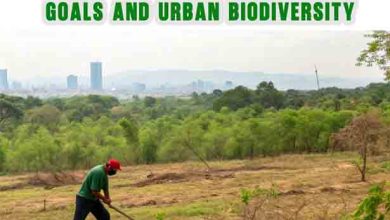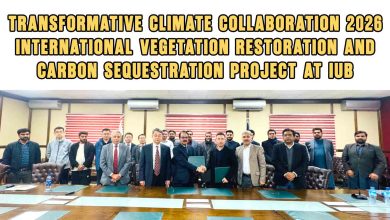Climate Change in Pakistan: PIDE Urges Responsible Tourism to Avert Environmental Collapse
Climate change in Pakistan is rapidly damaging its landscapes and tourism economy. PIDE calls for sustainable, responsible tourism to fight environmental risks.
Climate change in Pakistan is no longer a distant threat—it’s a pressing crisis impacting every sector of society, especially tourism. As temperatures rise and extreme weather events become more frequent, the once-thriving scenic spots of Pakistan are suffering from severe environmental degradation. Recognizing this challenge, the Pakistan Institute of Development Economics (PIDE) recently held a groundbreaking seminar urging for responsible tourism as a solution to mitigate climate threats.
PIDE Seminar Highlights Urgent Climate Risks
Held on Wednesday, July 16, in Islamabad, the seminar titled “Climate Change and Responsible Tourism in Pakistan” aimed to spotlight the environmental emergencies affecting the country’s tourism landscape. The keynote speaker, Wajahat Malik—a celebrated documentary filmmaker and Managing Director of EyeBex—delivered a compelling presentation on how unchecked tourism practices are accelerating climate deterioration in Pakistan.
Dr. Zulfiqar Ali, Assistant Professor at PIDE, moderated the session, emphasizing the need for academic and policy synergy to counteract climate vulnerability.
Tourism in Crisis: Northern Pakistan Under Threat
The mountainous northern regions—Gilgit-Baltistan, Chitral, Swat, and Hunza—have long been popular destinations for both local and international tourists. However, climate change in Pakistan is devastating these areas:
-
Glacial lake outburst floods (GLOFs) and flash floods destroy roads, bridges, and trekking routes.
-
Erratic weather patterns are shortening tourist seasons and reducing visitor numbers.
-
Landslides and avalanches, now more frequent, pose safety threats to tourists.
-
Overcrowded peak seasons are putting unsustainable pressure on water supplies and fragile ecosystems.
As these problems grow, local communities who depend on tourism face mounting economic hardships.
Responsible Tourism: A Climate-Smart Alternative
Wajahat Malik emphasized the dual nature of tourism: while it can harm the environment, it also has the power to protect it when practiced responsibly. He said:
“Mass tourism often leaves behind waste, emissions, and a damaged ecosystem. But responsible tourism can become a force for education, sustainability, and local empowerment.”
He defined responsible tourism as travel that minimizes negative social, economic, and environmental impacts, and promotes conservation and cultural appreciation.
Practical Steps for Tourists and Operators
To transform tourism into a climate-positive force, Malik recommended a series of actionable steps:
-
Eliminate Single-Use Plastics: Carry reusable water bottles, bags, and utensils.
-
Respect Ecosystems: Stick to designated trails and avoid disrupting wildlife habitats.
-
Support Local Economies: Choose local guides, eco-lodges, and authentic cultural experiences.
-
Low-Impact Transport: Opt for shared or non-motorized transportation where possible.
-
Pre-Trip Education: Learn about the environmental challenges of your destination.
Such practices not only reduce carbon footprints but also empower communities and preserve biodiversity.
Policy Reform: The Need for Sustainable Infrastructure
Beyond individual action, the seminar stressed the urgent need for policy-level interventions:
-
Investment in climate-resilient infrastructure like elevated roads, eco-friendly lodges, and solar-powered facilities.
-
Strict regulation of tourist-heavy zones to prevent overcrowding and pollution.
-
Educational campaigns targeting both tourists and locals on sustainable behavior.
-
Climate-focused zoning laws to protect vulnerable areas from overdevelopment.
Dr. Zulfiqar Ali noted that without these reforms, Pakistan risks losing not just tourism revenue but also vital ecosystems that support life and agriculture.
Conclusion: A Call to Action for Climate-Resilient Tourism
As climate change in Pakistan reshapes its physical and economic landscape, the role of tourism must also evolve. The seminar concluded with a powerful call to action for:
-
Policymakers to enforce sustainable development laws
-
Tourism operators to adopt eco-friendly practices
-
Researchers and academics to further study climate-tourism dynamics
-
Citizens to travel with consciousness and respect for nature
Wajahat Malik summed it up perfectly:
“Tourism is not just about leisure—it’s deeply political and environmental. We must use it to heal, not harm.”
The message from PIDE is clear: Pakistan must urgently pivot towards responsible, climate-conscious tourism to protect its fragile environments and secure its future.







